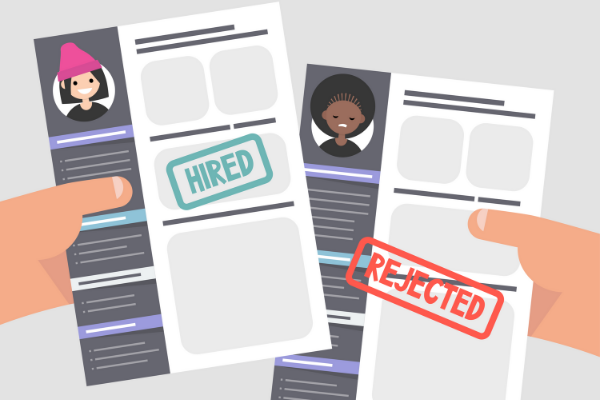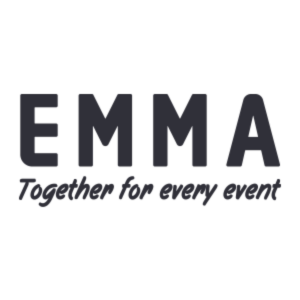Insights
INSIGHTS
All Topics
The right questions to ask digital candidates
27 Oct 2020by Paul Rubens
Charities may find themselves interviewing digital candidates for the first time. Here are some questions to help you find the perfect candidate
Not at this stage of your recruitment journey yet? No problem! Check out our guide to finding the right digital candidates for your organisation.
Many charities have a shortage of the digital skills needed to move to a more data driven, digital way of operating. And since it is often quicker and easier to teach people with existing digital skills how a charity works than it is to train charity employees to provide them with high level digital skills, the most practical solution if often to recruit staff with the digital skills that a charity is lacking.
In these difficult economic times, it should not be hard to attract a good selection of candidates for a digital role at your charity. The problem is more likely to be ensuring that you recruit the best candidate and can retain them, and to do that you need to ask the right questions during interviews, whether they are held face to face or, more likely, as a digital interview.
Prepare before the interview
Ensuring that your interview process is effective can be hard. Especially when you are looking to recruit someone who may have more digital skills than anyone currently working at your charity. So before an interview starts it is wise to ensure that you are fully prepared.
Steps you should take include:
- Make sure you understand as much about the charity role you are recruiting for as possible, even if (as is likely) you have no experience in that role
- Reread each digital candidate’s CV, covering letter and any background information you have gathered (perhaps from searching for them on social media) before the interview starts
- Have a structure that you use for all your interviews. This might be a five-minute introduction and overview of the company, twenty minutes for questioning the digital candidate, and five minutes at the end for the candidate to ask questions
- Be consistent in all your interviews by asking the same questions so you can compare digital candidates’ answers
- Choose the questions that you ask carefully in advance so that you can find out everything you need to know about each candidate
The last point above is perhaps the most important, so it is productive to think about what sorts of questions you should ask.
Five categories of questions for digital candidates
Very broadly, questions should be split up into five categories:
Behavioural questions, which can help you learn about the candidate’s personality and whether they are likely to fit with the culture of your charity.
Example: "Do you prefer to work alone or part of a team?"
Situational questions, which can reveal how the digital candidate might perform their role.
Example: "What would you do if you encountered a problem during a project and didn’t know how to solve it?"
Qualification questions, which seek to establish what training or specialist knowledge they can bring to the role.
Example: "What qualifications do you have or training courses have you done which are relevant to the role?"
This question may be more important if you are looking to recruit a cyber security expert or software developer than if you are looking for a digital marketing assistant or social media manager for your charity.
Digital knowledge and experience questions, which seek to establish whether they have the ability to carry out the role.
Example: "What is the most interesting (digital fundraising/digital marketing etc) project that you have managed?" or "What is the most important thing that someone in this role should be doing?"
Delving Deeper
Once you have worked out which candidates should proceed to a second interview, you can proceed with more complex questions. These questions are designed to elicit specific types of information from digital candidates.
These can be modified to suit the precise role that the digital candidate is interviewing for, but general examples include:
Question: "What digital resources do you use to help you keep your skills up to date?"
Purpose: Since digital skills evolve over time, often very quickly, the only way to keep up with these changes is often by visiting online resources such as specific websites, forums, blogs and social media feeds. The answer to this question can help you understand how engaged with this type of role the digital candidate is, and how keen they are to keep abreast of new developments.
Question: "Could you explain to me what (some relevant term for the role) means?"
Purpose: How the digital candidate answers this question can be very revealing as it will demonstrate their communication skills. It will also shed some light on whether they would be good at working with less skilled people who need coaching, and whether they would be able to interact effectively with people in other departments in your charity who may have no digital skills.
Question: "Tell me about a project you have been involved in that didn’t work or did not go as well as you expected, and why that happened."
Purpose: The problem itself isn’t important, but what is interesting is how they reacted to it. Did they blame others for the project’s failure, or are they keen to tell you what they learned from the mistake?
Question: "What are your favourite digital tools to use in this role?"
Purpose: This question can give you an insight into whether the digital candidate is genuinely enthusiastic about the role they are applying for. What is revealing is why they like a tool they mention – perhaps a particular feature which they think is hugely promising or useful. An animated answer to this question indicates that they are thinking about how they can develop how they work to do their job better.
Question: "What do you hope you would have achieved after six months in this role?"
Purpose: This is a good question to ask because it can give you an understanding of what the candidate thinks that the role should be, and whether it fits with what you want, and with the job description. If there is a mismatch between what they say they hope to achieve and what you need then clearly they may not be the right person for the job.
More on this topic
Recommended Products
Our Events
Charity Digital Academy
Our courses aim, in just three hours, to enhance soft skills and hard skills, boost your knowledge of finance and artificial intelligence, and supercharge your digital capabilities. Check out some of the incredible options by clicking here.



















